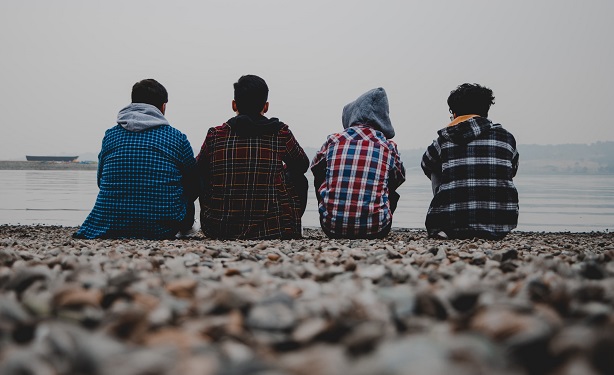Breaking the Silence: Addressing the Crisis Facing Teenage Boys
Date: Thursday 03 Apr 2025
In a world where societal expectations and toxic masculinity continue to weigh heavily on young men, the article "Exploring the Crisis Facing Teenage Boys: Insights from 'Adolescence'" sheds light on a growing mental health crisis that demands urgent attention. The Netflix series Adolescence, created by Stephen Graham and Jack Thorne, serves as a poignant mirror to the struggles of teenage boys, highlighting the pressures of toxic masculinity, online hostility, and societal expectations. At its core, the series and the article underscore a critical truth: the mental health of teenage boys is in jeopardy, and the time to act is now.
The pandemic has only exacerbated these challenges, with NHS data revealing that over half of young people aged 17 to 23 have experienced a decline in their mental health. For teenage boys, the intersection of societal pressures, internet misogyny, and the relentless demands of social media creates a perfect storm of emotional turmoil. The story of Jamie Miller, a 13-year-old entangled in a tragic murder case in *Adolescence*, is a stark reminder of the real-life consequences of ignoring these issues. It’s a wake-up call for society to confront the toxic narratives that young men are forced to navigate daily.
One of the most striking aspects of the article is its emphasis on the voices of young men themselves. Activists like James Wilson and Jeremy Lyons are leading the charge, engaging their peers in workshops about gender equality and the spectrum of masculinity. Their efforts to create safe spaces for dialogue about mental health and healthy relationships are commendable and necessary. These young leaders are challenging the damaging stereotypes that boys internalize, proving that vulnerability is not a weakness but a strength.
The article also highlights the role of education in addressing this crisis. Mental health campaigners Ben West and Conor Warren critique an education system that prioritizes academic achievements over emotional well-being. Their call for a reimagined approach to education—one that places mental health on par with academic success—is a powerful reminder that true success is not measured by grades alone but by the ability to navigate life’s challenges with resilience and emotional intelligence.
However, the responsibility does not rest solely on the shoulders of young men and educators. Parents, communities, and policymakers must also play their part. The article points to the importance of open conversations about masculinity and mental health, as well as the need for resources and platforms that empower young men to express their feelings and seek help. Charities like Beyond and Spark UK are already making strides in this area, but more support is needed to create a lasting impact.
As a society, we must confront the stigma surrounding men’s mental health and dismantle the toxic narratives that perpetuate silence and suffering. Platforms like Brothers in Arms and their flagship tool, Blethr, are leading the way by providing innovative digital solutions tailored to the unique needs of men. Blethr, in particular, serves as a digital buddy, offering emotional support and guidance to help men recognize and articulate their feelings. For teenage boys struggling to navigate the complexities of their inner worlds, tools like Blethr can be a lifeline.
The article concludes with a message of hope and transformation. As young men like Byron, a budding rapper, use creative outlets to articulate their experiences, they demonstrate the power of vulnerability and connection. Their stories challenge the narrative that emotions are a sign of weakness, proving instead that expressing feelings and supporting one another can lead to a more compassionate understanding of manhood.
In the face of this crisis, we have a choice: to remain silent or to take action. By listening to the voices of young men, supporting innovative solutions, and fostering open dialogue, we can create a future where teenage boys are not defined by the pressures they face but by the strength they find in overcoming them. The time to act is now because the mental health of our boys cannot wait.
For more insights and resources, read our full article here: https://www.brothersinarmsscotland.co.uk/information/mens-wellbeing-articles/2025/april/03/exploring-the-crisis-facing-teenage-boys-insights-from-adolescence/.

